A secret cabin bookcase: books revived!
How we built a secret cabin bookcase door from unwanted books
Rethinking waste part 2: books
In Rethinking Waste: pencils we talked about what happens to day-to-day items when you have a surplus. All too often we assume can recycle something when in actual fact, we can’t.
This article tackles something a little trickier. Books. What happens when we no longer want the literature that has adorned our bookshelves for years?
For most people, the first option is the charity shop. But this isn’t always the solution you think it is.
And what about recycling? Books are paper…. or are they?
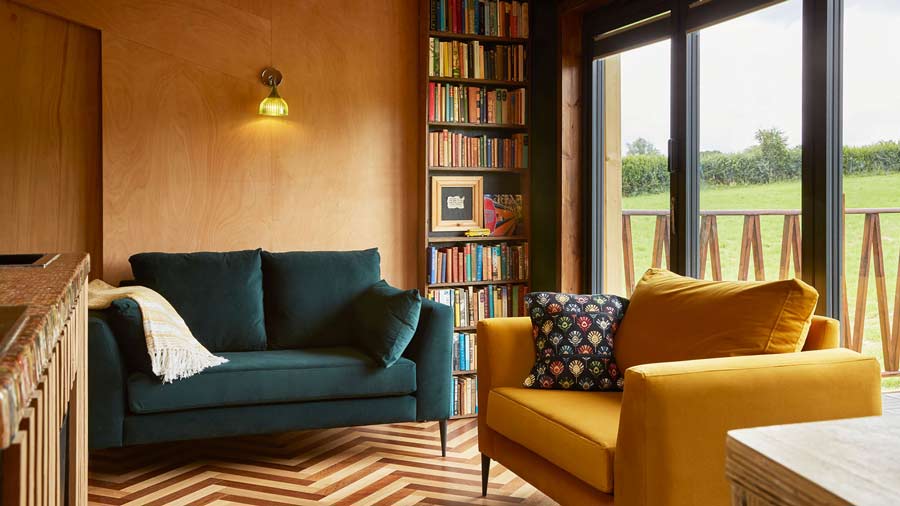
The story behind the secret cabin door
When we designed the cabin, we spoke to our kids about how we could make the children’s bunk room cool. They immediately knew – a secret bookcase door.
Through FB marketplace I came across a lady whose father-in-law was going into care. He had collected books his whole life and had a huge bookcase of ex-library books and old hardback history and travel books that she had no idea what to do with. We collected them and started working on our design.
And then we hit a snag..
Books are heavy and the door was huge. In order to turn the kid’s vision into reality, we would have to reduce the weight and size of the project and this could only be achieved by chopping up the books to make them two-thirds of the size.
That felt very wrong. People have strong feelings about books. All those words that somebody wrote and all that time they spent creating their masterpiece. And the impact: a book has the power to inspire you, give you clarity, even change or challenge your assumptions about life. Chopping them up felt disrespectful.
Aware that we would have to abandon our plan for a secret bookcase, I spent a day trying to get rid of all the books I had accumulated. Some of them had beautiful covers and looked to have value, so I catalogued, photographed and researched the collection before sending the images to booksellers who appeared to deal in the relevant areas.
I was told categorically by all of them that they had absolutely no value and were not wanted. Send them to a charity shop.
I contacted charity shops, but with the current trend to de-clutter, and the rise of e-readers replacing physical books, they didn’t want all of my books. Some may have been accepted, but I had hundreds. If you think about it, it’s obvious. Storage is at a premium and charity shops only really want stock they can sell. And what sells is not always what is most popular. The Daily Telegraph reported that after the initial buzz about Fifty Shades of Grey, Cancer Research UK found that for every donated book they sold, “they (would) get two donations in its place… People are offloading them now in droves …its becoming a paper mountain”. They stopped accepting them.
There are of course online booksellers. Ziffit, for example. takes books. You can scan them in and may even make some money from Ziffit. Be aware they only want “good, readable condition” though. If they are annotated, damaged, missing a dust jacket, ex-rental or missing supplements, they get sent off for recycling. The same applies for webuybooks.
Recycle now says “Books cannot usually be recycled at kerbside along with other paper recycling because of the glue that’s used to bind them.”
So if charity shops don’t want them, Ziffit won’t take them and they can’t be recycled, what next?
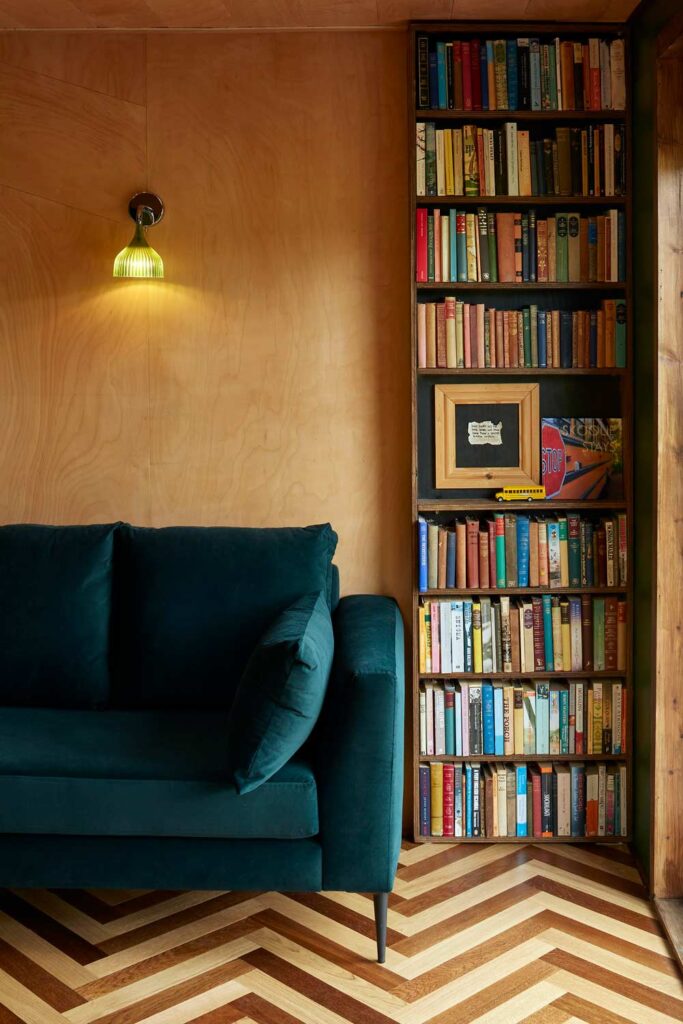
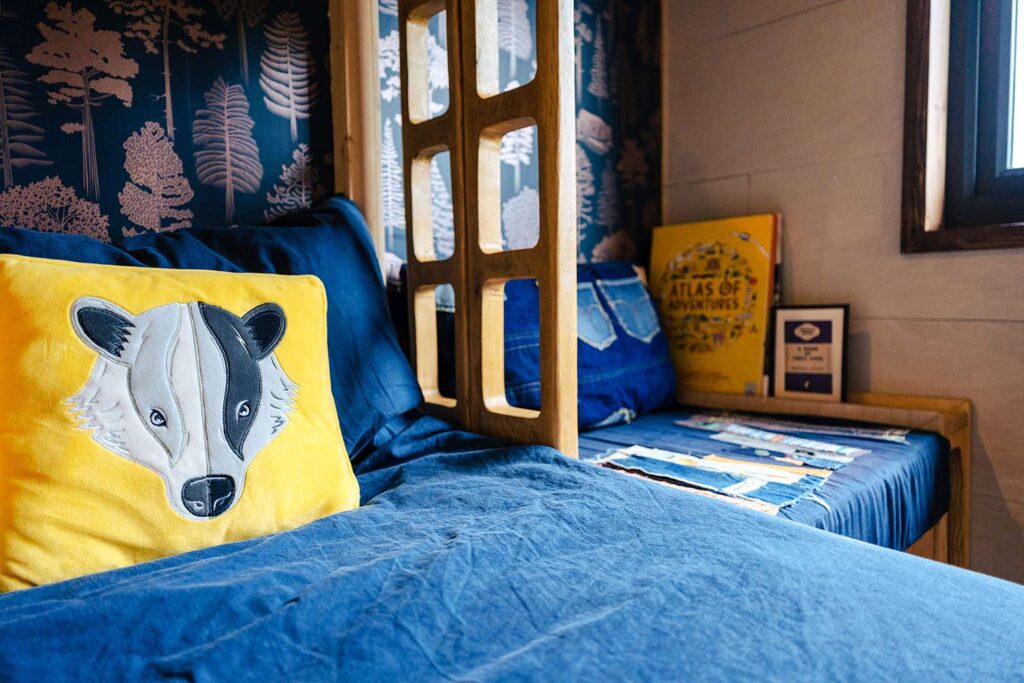
OPEN THE SECRET BOOKCASE DOOR, HUNKER DOWN, READ A BOOK – FIND OUT ABOUT
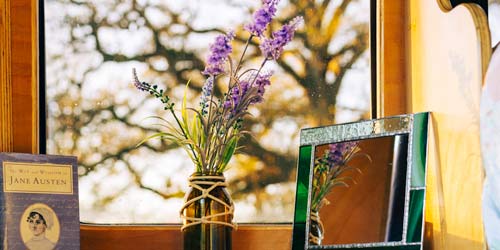
Feel Good holiday
The Vacationist has been converted with the environment in mind. Lovingly hand-crafted by carpenters and creatives searching to reduce the carbon impact of holidays, the cabin is the perfect balance of comfort, escapism and eco- solutions.
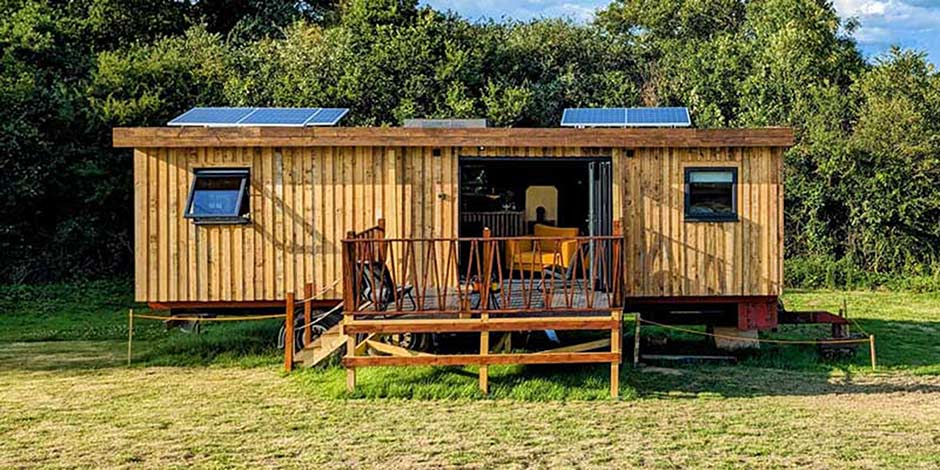
Fabulous Location
Nestled in a private meadow, The Vacationist offers access to hiking, biking, spas, kids activities and lovely pubs! It is also next to Crockstead Fields – a festival and wedding site for those who are attending an event and don’t fancy roughing it in a tent!

things to do
Hike or bike the hills and cliffs; enjoy the ambience, food and drink of the local villages; immerse yourself in seaside fun; explore acres of Grade I listed landscaped garden and lakes at Sheffield Park or get your adrenaline fix at Branching Out Adventures.
A new chapter for old books
I started to wonder if perhaps we should rethink what a book’s purpose is. We are long gone from the days in which only one manuscript was written – when books really were sacred. If I took what I wrote above – about inspiration and challenging assumptions – I realised that we could keep the power of books alive by rethinking the way in which we used them.
Our bookcase idea was created by our kids because we have brought them up to read books. They were engaged and inspired by stories of secret bookcases and hidden dens. I had told them it wasn’t possible because we couldn’t cut up books, but now I realised that there was really no place for old books to go to die and perhaps they might actual fulfil their purpose by adorning our door in a more slimline form.
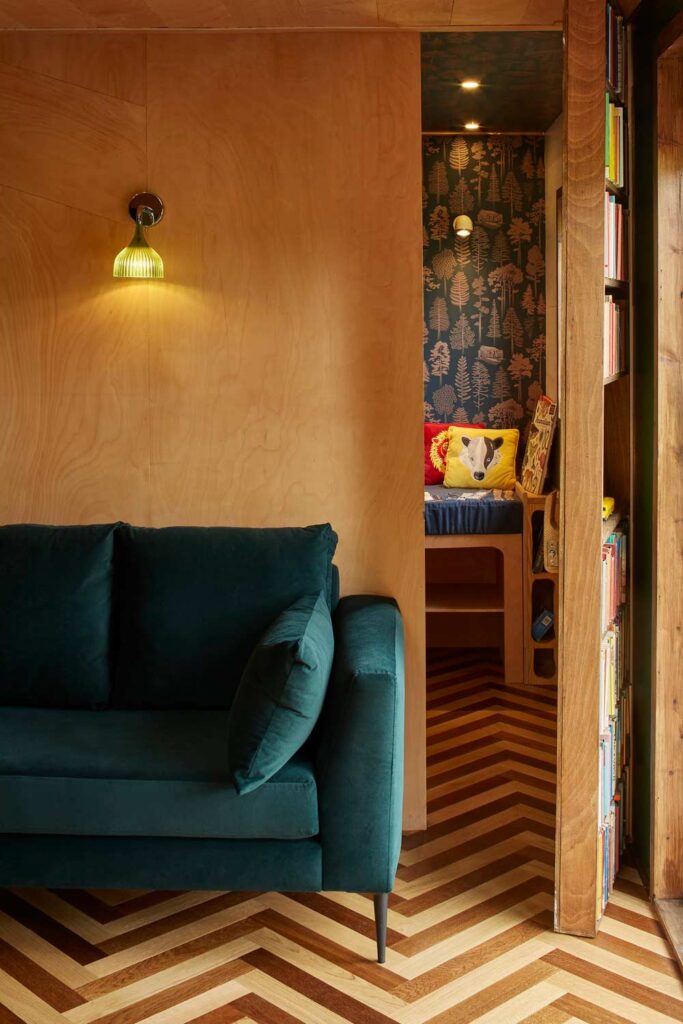


Creating our secret bookshelf door
I won’t lie – it felt very wrong bringing the saw down.
We took the books that were damaged or that we believed would not sell and methodically cut them into two-third versions of their former selves. We glued them into position (for safety).
The only book we bought during the process was “The Secret Door”… we wanted something that might grab a child’s attention and this was the perfect clue.
In place, the bookshelf looks amazing. But what is even better is the reaction we have had from young people. Their eyes light up with magic when they discover the secret.
When they go inside, they find books on adventuring and stories of the world, activity books and tales of how we can help the planet. They curl up and dive right into them. Our literary door has set the tone to a weekend of escapism, inspiration and creativity.
And isn’t that what books are all about?



